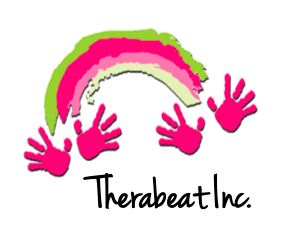Music therapy students, like those in other health or music-related fields, are especially vulnerable to mental health challenges due to demanding coursework, performance pressure, and clinical responsibilities. The transition to college often coincides with emerging adulthood (ages 18 to 25), a critical period marked by ongoing brain development, increasing independence, and emotional growth. This stage of life is also when many mental health conditions first appear, with about 63% of individuals experiencing onset before age 25 (Gooding et al., 2024).
Even without a formal diagnosis, emotional distress is common among college students. One survey found high rates of anxiety, exhaustion, loneliness, and feeling overwhelmed by responsibilities (ACHA, 2018). Music therapy majors may also experience additional stress from student debt, practicum requirements, and uncertainty about their future. For students with invisible disabilities such as mental health conditions, these challenges can be even more difficult, potentially affecting both academic progress and personal well-being.
Self-care is essential not just for surviving college but for sustaining long-term success and well-being as a music therapist. Without intentional self-care, students risk burnout, compassion fatigue, and long-term disengagement from their work. Here are key self-care strategies drawn from current research and student experiences:
General Self-Care Tips:
View self-care as an act of self-preservation, a way to recharge after putting energy into academics, clinical work, and helping others.
Remember that how you care for yourself now can influence how effectively you care for clients in the future.
Build habits that support your emotional, physical, spiritual, and social health early in your training.
Emotional & Social Self-Care:
Nurture relationships that exist both within and outside of your academic or clinical environment to maintain a strong, balanced support system.
Lean on your support system to stay emotionally grounded and reduce feelings of isolation.
Set emotional boundaries so you don’t become overextended in school or clinical responsibilities.
Physical & Nutritional Self-Care:
Regularly move your body to manage stress and maintain energy levels.
Eat balanced meals and try to keep a steady sleep routine.
Pay attention to your body’s signals. Rest when you’re tired, stay hydrated, and avoid pushing yourself past your limits.
Time & Occupational Self-Care:
Make time for activities that are not related to school or music therapy, such as hobbies or rest.
Create a manageable schedule that includes breaks from music-related tasks.
Set realistic expectations for yourself and feel comfortable saying “no” to avoid burnout.
Music Based Self-Care:
Keep a personal connection with music that is not tied to school or clinical goals.
Revisit the music that originally sparked your love for the field.
If music starts to feel exhausting, explore other self-care practices such as silence, journaling, time in nature, or other creative outlets.
Find ways to use music for your own growth and comfort, not just for therapeutic work with clients.
-Asila Folds, Music Therapy Intern
Resources:
Boeser, A., & Silverman, M. J. (2024). Development and implementation of self-care strategies in undergraduate music therapy students: A qualitative thematic analysis. Nordic Journal of Music Therapy, 33(4), 344–360.
Gooding, L. F., & Ferrer, A. J. (2024). Supporting music therapy majors with mental health conditions. Music Therapy Perspectives, 43(1).
Fiore, J. (2020, August). Self-care toolbox for music therapy students [Podcast]. AMTA-Pro. American Music Therapy Association.
American College Health Association. (2018). American College Health Association-National College Health Assessment II: Reference Group Executive Summary Spring 2018. Silver Spring, MD: Author.

